
As far back as I can remember, I have been an obsessive keeper and collector of notebooks, devoted to filling them with lists and notes and doodles — but I have never been good at keeping an actual journal. I first remember trying when I was 10 years old, but somewhere around day three or four of yet another entry beginning “I went to school and then I came home…” I would inevitably throw in the towel and decide that diaries were meant for people with more glamorous and exciting lives than mine.
My inability to keep a journal has not in any way hindered my notebook consumption over the years. Beginning in elementary school, despite having almost no homework, I had a series of assignment notebooks, and my emotional attachment to them rivaled my classmates’ feelings about their American Girl dolls. The absence of actual assignments in second and third grade meant that I filled the pages of these assignment notebooks primarily with imaginary homework (really) and endless lists — lists of books I had read, or things my older brother was allowed to do that I wasn’t, or what I wanted for my birthday (usually Staples gift cards so I could buy more notebooks). I have kept some form of assignment notebook or planner steadily for almost two decades now and they are always filled with some mix of lists and brief, bulleted notes. Writing in notebooks is how I think, how I relax, how I make myself do work and run errands, how I remember things. Pointless meetings, long-term projects, and looming anxieties all seem more manageable once I’ve broken them down into neat bullet points.
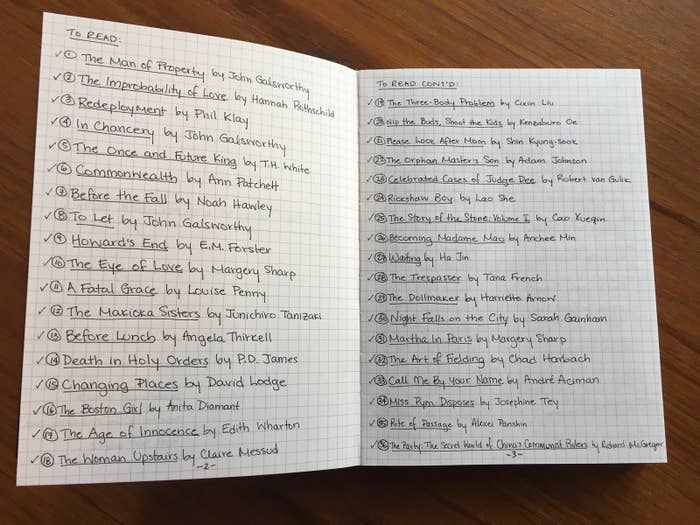
In Harriet the Spy — one of the great literary meditations on the political, professional, and personal nuances of notebooks — Louise Fitzhugh describes 11-year-old Harriet Welsch being reunited with her notebook in the afternoon, after her parents and teacher force her to leave it at home during the school day:
She ran into her room and flung herself on the bed. She lay quietly for a minute looking reverently at her notebook and then opened it. She had had an unreasonable fear that it would be empty, but there was her handwriting, reassuring if not beautiful. She grabbed up the pen and felt the mercy of her thoughts coming quickly, zooming through her head out the pen onto the paper. What a relief, she thought to herself; for a moment I thought I had dried up. She wrote a lot about what she felt, relishing the joy of her fingers gliding across the page, the sheer relief of communication.
Harriet’s relief is familiar to every compulsive notebook-keeper, but oh, how much sweeter and more satisfying that feeling is when the notebook in your hands is the perfect notebook — the one you have been searching for all your life.
In March 2015, my mother discovered Fantasticpaper notebooks, manufactured by the German company Authentics, in a department store in Berlin. She brought me back two gray Fantasticpapers and I fell in love.
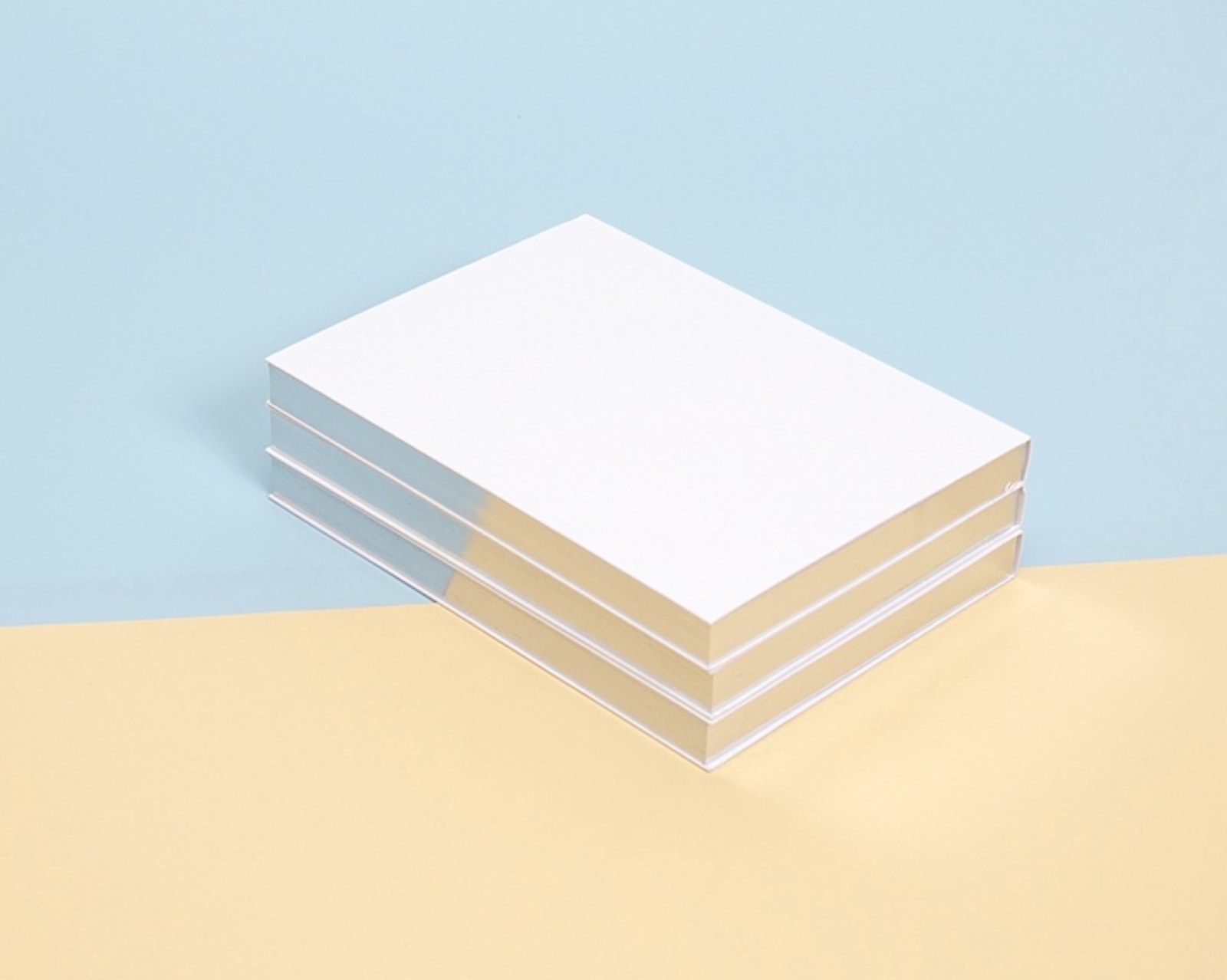
The relationship between a person and their favorite notebook is as mysterious and unfathomable to outsiders as a marriage, so I’m not sure I can explain why the Fantasticpaper notebooks are the only notebooks I want to write in for the rest of my life... but I’ll try. They have a sewn binding that lays perfectly flat when open, paper so thick that absolutely no ink bleeds through the page, a durable cardboard cover that doesn’t peel after months of intensive use, and a modern geometric industrial design aesthetic that is pretty without being too precious. It is as if the designers heard every complaint I’d ever made about a notebook — curling covers, too-bright grid lines, too-large graph paper squares, thin paper, unsatisfactory binding — and designed this notebook just to meet my particular specifications. When you find The One, you don’t want to waste any time, so I immediately set about trying to track down more Fantasticpaper notebooks, finally discovering a Belgian fountain pen store that was willing to ship them to the US in bulk.
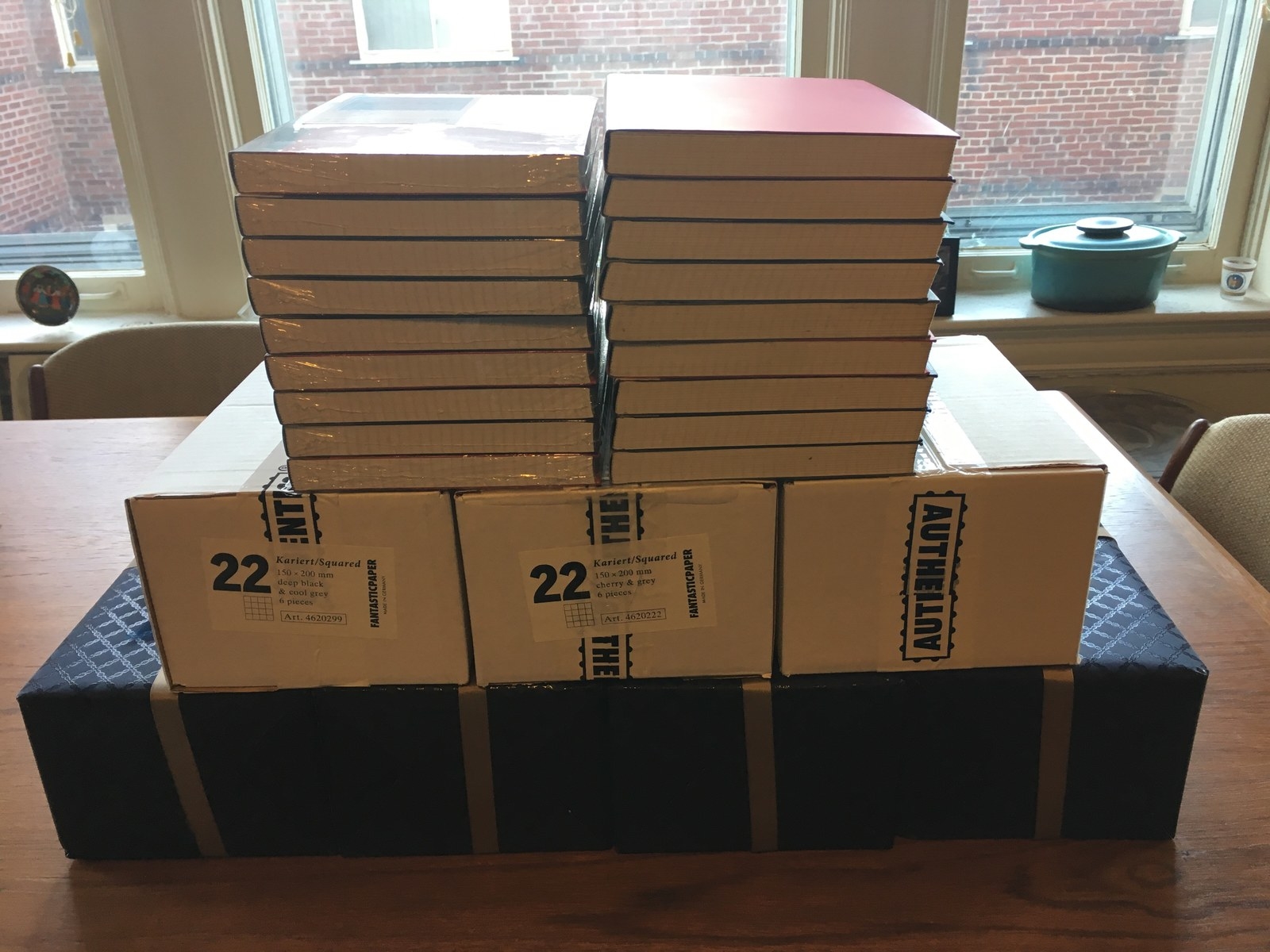
How to explain my attachment to these notebooks? Put it this way: I once left a partially filled Fantasticpaper at an event in Washington, DC, and didn’t discover that it was no longer in my bag until I was already on the train back to New York, at which point I seriously considered getting off at the next stop and going back to DC. Even after I resolved to stay on the train and the event coordinator found the notebook and Fedexed it to me later that week, I didn’t let myself start a new one for nearly two months, until I trusted myself again to take care of something so precious. When I pictured myself at 30 or 35, my chief concern was not whether I would love my job or my spouse — it was whether I would have run out of notebooks.
When I pictured myself at 30 or 35, my chief concern was not whether I would love my job or my spouse — it was whether I would have run out of notebooks.
At first, I used Fantasticpaper notebooks the same way I always had, for making lists and taking notes, but once I was armed with a truly embarrassing quantity of them, I found myself once again tempted by the possibility of keeping a journal. I’ve always viewed journaling as the holy grail of notebook use, partly because I love reading the diaries of historical figures, like Louisa May Alcott (whose collected journals begin at age 11!), and even fictional diaries like the charming Amelia’s Notebook series. Since all of the writing I do for work is intended for an audience, I also liked the idea of writing something — really writing, not just jotting down notes — that was only for myself. And as a cybersecurity researcher, if I was going to try to write something for my eyes only, I wanted to do it on paper where it would be impervious to digital compromise. In the past, none of this had been enough to make me actually stick with journaling. But this time, I believed, would be different because this time, I had Fantasticpaper. And you know something? It was.
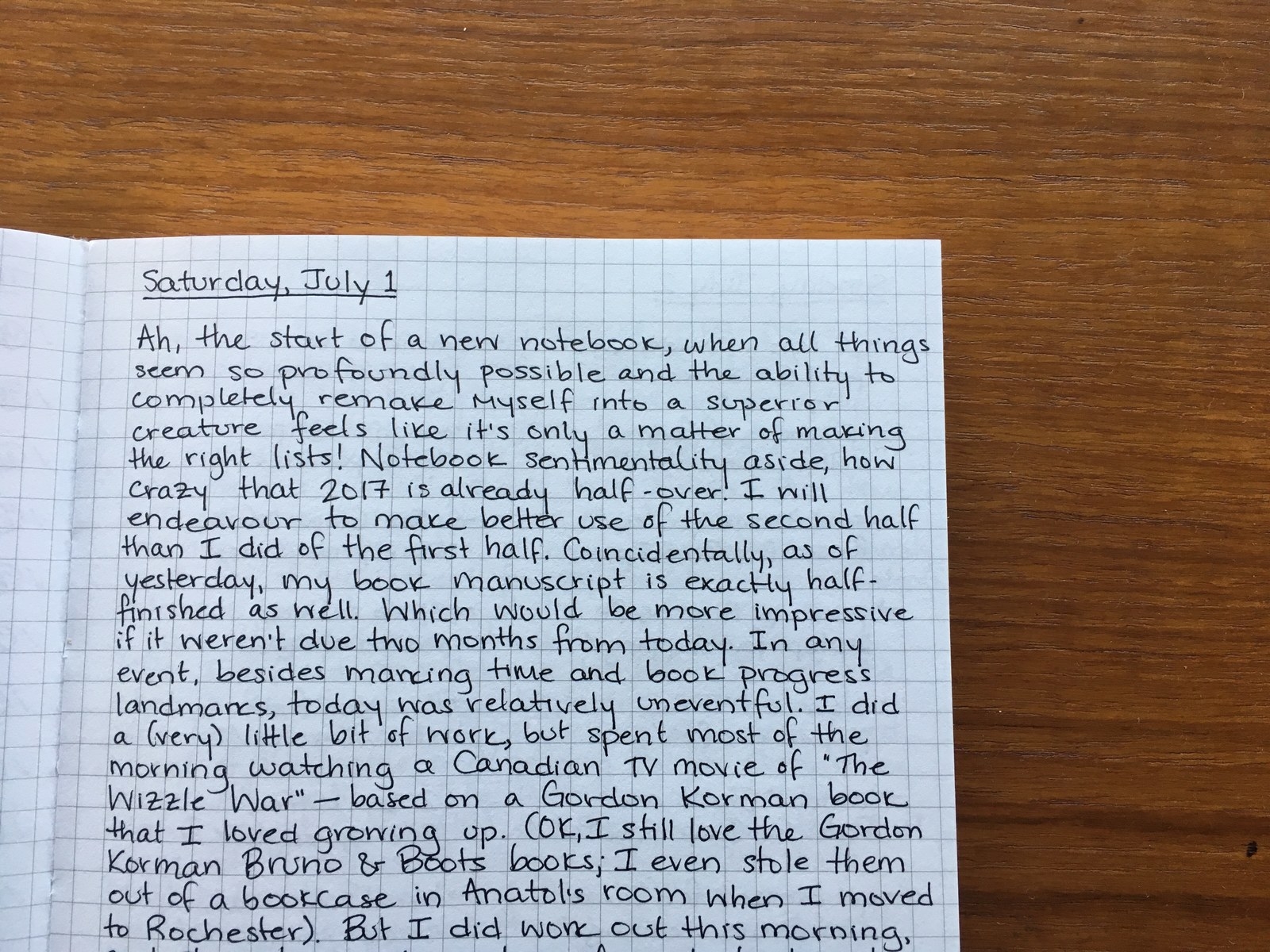
Perhaps it wasn’t all credit to the notebook itself; perhaps part of the reason journaling felt different this time was that I finally realized that writing a page every day did not have to mean writing a page about my day. Narrating the events of my day left me feeling uninspired. So instead, I began to write whatever came to mind. My only rule: I had to fill the page writing in full sentences — no bullet points allowed. The days when nothing especially noteworthy happened and I let my mind wander for 30 minutes in the evening often led to the most interesting, least expected pages — the ones that surprised me by revealing how irritated I actually was with someone, or how anxious I was about an upcoming event, or how much I wanted to try for something I didn’t think I would get. Forcing myself to fill a full page each night meant that I couldn’t just brush those thoughts aside or dismiss them in a sentence or two. I had to explore them at least to the last line, a process that often elicited sentiments I was none too eager to confess. But also — and yes, I fully recognize how ridiculous this sounds to a lot of people — journaling worked for me this time in part because I had found my one true notebook.
In 2017, I stockpiled enough Fantasticpaper notebooks to last me for at least the next decade because I am terrified that someday they will stop being manufactured, or the one woman in Belgium who is willing to ship them to the United States will retire from her fountain pen business, and then where will I be? When I think about a future without Fantasticpaper, I imagine a world in which one of the great joys of my life — writing in notebooks — has become a little less satisfying and more perfunctory. So I go on ordering more and more, gathering supplies as if I’m preparing for a very particular kind of catastrophe during which I will not need any bottled water, batteries, or canned food but will instead survive on notebooks alone.
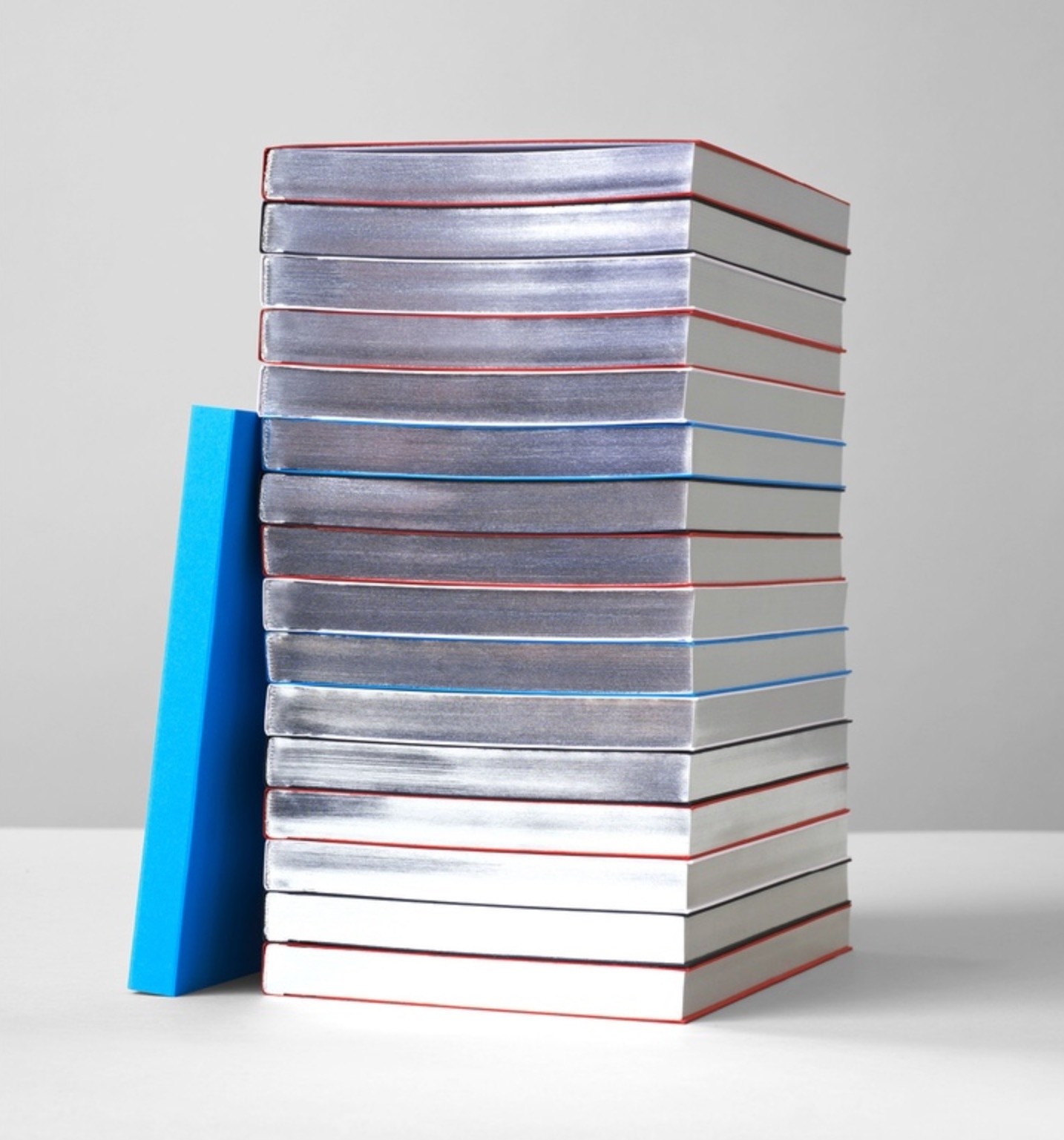
Long-term life planning in your late twenties is daunting in every respect. But in its own small way, finding a notebook that fits me so perfectly that I’m willing to commit to using it for the next 10 years has made me a little less afraid of planning for and thinking about the future. It has made me want to write more in my notebooks, to write in new ways in my notebooks — it has liberated me to explore deeper and scarier and more embarrassing thoughts than what groceries I want to buy for this week or what emails I need to respond to (though I still routinely make both those lists in my notebooks as well). Thirty-five lines’ worth of forced self-reflection every evening has made me braver about facing the feelings I’m least proud of, the grudges I'm most ashamed of holding onto, and the things I want for my future (besides more Fantasticpaper notebooks).
Notebooks are, fundamentally, tools for looking forward and looking back. They’re for recording your past and planning your future in the least anxiety-inducing way possible, in a way that actually suggests you have some control over the direction of your life, while still giving you the freedom to cross things out and start over with a blank sheet of paper. Cataloging a day, a month, or a year in a notebook helps me to mark and cherish the passage of time instead of panicking at how quickly it's flying by. Creating and maintaining these small personal archives of my past gives me license to get excited about the future and all the years and fresh, clean pages of Fantasticpaper notebooks to come.
